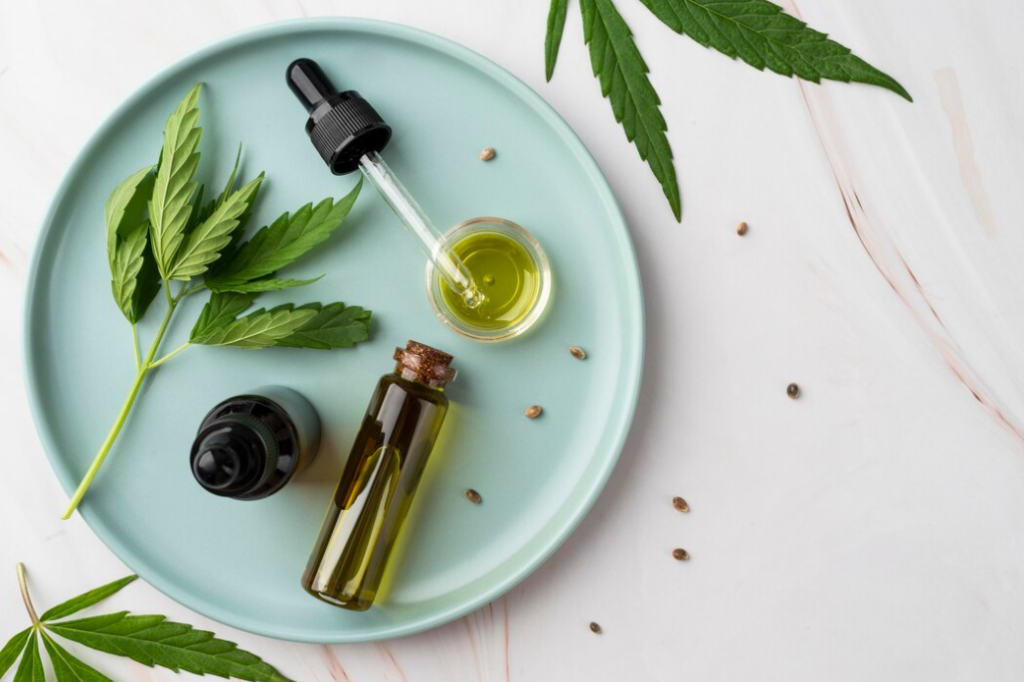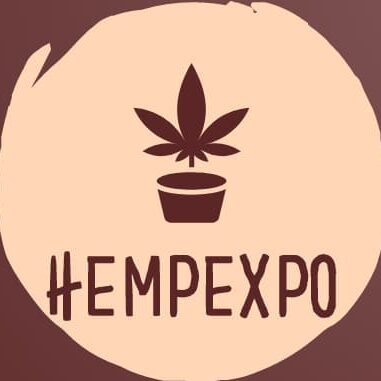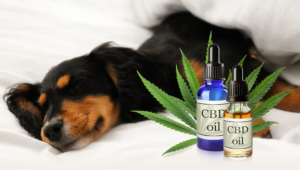
With the U.S. CBD market poised for remarkable growth – an anticipated compound annual rate of 28.6% from 2022 to 2029 – the industry has captured the interest of several budding entrepreneurs.
Venturing into the CBD arena is not devoid of challenges. Its recent federal legalization via the 2018 Farm Bill has presented a layered landscape of regulations. Consequently, the financial sector often deems the CBD business as high-risk. However, with comprehensive insights into the licensing process, you can sidestep potential roadblocks while setting up your CBD distribution channel.
Dive into our in-depth guide below on the essentials of CBD licensing.
What Is a CBD License?
Venturing into the CBD arena is not devoid of challenges. Its recent federal legalization via the 2018 Farm Bill has presented a layered landscape of regulations. Consequently, the financial sector often deems the CBD business as high-risk. However, with comprehensive insights into the licensing process, you can sidestep potential roadblocks while setting up your CBD distribution channel.
A CBD license serves as a gateway for businesses to distribute CBD products. Types of CBD licenses may encompass business permits, resale authorizations, and other state-mandated licenses for CBD distribution. The type and requirements of these licenses fluctuate based on state policies and the specific CBD products in question. It’s crucial to note that there isn’t a standardized licensing blueprint across the U.S., as each state has autonomy over its hemp regulations.
Explore varieties of CBD licenses:
CBD Business License
To legally operate within a specific state, companies often need a business permit. Yet, while some states insist on these licenses, others may have alternative certification criteria. Engaging with local regulatory bodies can clarify whether a permit is essential for CBD trade in your region.
CBD Resale License
This permit empowers businesses to retail CBD products acquired from wholesalers. Given that many CBD sellers don’t produce or wholesale directly, the wholesale permit is among the most prevalent licensing types for them.
Other CBD Related Licenses
Beyond the standard operational and wholesale permits, there might be specialized licensing norms in your state, such as a “Hemp Consumption Product Permit” or other related certifications.
It’s a common stipulation for CBD items to maintain a THC content of 0.3% or below, with third-party evaluations often mandated for confirmation. Regulatory bodies might need documented evidence of these THC concentrations as part of the state’s licensing framework.
Moreover, the exact permit you need could be influenced by the specific facet of the CBD industry you’re involved in. Different segments like cultivation, production, distribution, or other ancillary tasks might each have unique licensing requirements.
Is a License Essential for CBD Sales?

When contemplating the sale of CBD products, it’s pivotal to understand the licensing prerequisites. The jurisdiction in which you plan to distribute your products plays a significant role. For instance, residing in California doesn’t exempt you from adhering to the licensing norms of other states if you aim to market products beyond its borders. The financial performance of your CBD venture might also dictate the licensing need. Some regions might have set revenue markers or graded licensing frameworks that correlate with your yearly earnings.
Your product procurement strategy is another aspect to consider. Securing CBD goods from a wholesaler might mean they already possess the requisite permits and certifications. The nature of your business operations, be it retail, production, cultivation, or distribution, also shapes the licensing mandate for CBD products.
Requirements for License Application
For general business or resale licenses, applicants typically provide details about their enterprise activities, communication addresses, tax-related information, and other essential aspects. But when it comes to licenses tailored for CBD businesses, the criteria might be more intricate. These requirements can differ widely based on regional regulations, but it’s valuable to consider some common elements that might be demanded by state governing bodies for a CBD permit:
- Fee payment associated with the licensing process.
- A comprehensive description of the range of CBD goods you offer.
- Insights into the origin or source from where your CBD items are procured.
- Data related to your physical storefronts or sales venues.
- An official declaration asserting your commitment to comply with local CBD regulations.
- Documentation validating possession of any necessary auxiliary licenses or authorizations.
How to Obtain Your CBD Licensing
An individual delves into the intricacies of procuring a CBD permit. While there isn’t a nationwide mandate to possess a license for CBD sales, the procedures largely hinge on your region’s rules. The first step is pinpointing the exact licenses your venture might need, after which you delve deep into understanding and satisfying the associated criteria. This encompasses compiling specifics about the products you deal with, their THC content, assessments by independent testing agencies, requisite business permits, and registration for sales tax, among other details. Given the extensive nature of the licensing phase, which can stretch for an extended period, it’s advisable to embark on the application journey at the earliest to mitigate potential hold-ups.
Steps to obtain your CBD licensing:
- Regional Regulations: Since there’s no unified national requirement for CBD licenses, it’s crucial to be well-versed with the specific guidelines set by your state or region.
- Identify Necessary Licenses: Before diving in, ascertain the precise licenses essential for your business model. Different states might have distinct requirements based on the spectrum of CBD activities you wish to engage in.
- Gather Product Information: Detailed knowledge about the CBD products you plan to sell is crucial. This includes:
Specifics of the products
THC content
Independent third-party test results
- Business Documentation: Ensure you have the necessary documentation in place, such as:
Relevant business permits
Sales tax registration
Any other local or state-required paperwork
- Start Early: The process of securing a CBD license can be time-consuming, given its complexity. It’s beneficial to initiate the licensing application as soon as possible, allowing ample time to address any unforeseen challenges or delays.
Renewing Your CBD License
The path to rejuvenating a CBD permit is multifaceted and hinges predominantly on regional regulations. Given that a plethora of CBD enterprises need an assortment of permits to market their products, the renewal pathways differ based on the specific credential in question. A proactive approach involves keeping a vigilant eye on the validity period and retracing to the primary licensing authority for an efficient renewal. Your region might have a dedicated entity such as the “Bureau of Cannabis Operations” or a similar institution overseeing the issuance and extension of CBD permits.

Additional Requirements for Launching Your CBD Business
Venturing into the CBD market? Alongside a specific CBD permit, it’s crucial to establish an LLC, procure an EIN, and enlist for sales tax compliance in your respective state. Even though fundamental prerequisites might oscillate based on your geographical locale, states usually offer a centralized digital platform detailing the foundational steps to kickstart an enterprise, encompassing permissions and tax compliance insights.
Subsequently, you’d need to mull over your sales strategy—whether to establish a tangible storefront or venture solely into the digital realm. If the latter appeals to you, there’s an abundance of intuitive online tools and platforms tailored for the creation of digital storefronts, even for those less tech-savvy.
Lastly, with the majority of conventional payment processors steering clear from the CBD realm, it becomes imperative to align with a high-risk merchant service. By doing so, you not only pave the way for customer transactions but also tap into a plethora of advantages—be it specialized assistance, enhanced chargeback thresholds, or a myriad of other business-centric perks.
Where To Buy Mood CBD Products?
Mood CBD products have garnered significant attention in the wellness industry due to their potential therapeutic effects. For those keen to explore their offerings, there are several reputable outlets to consider. Physical health and wellness stores in various cities often stock Mood CBD items, giving consumers the opportunity to inspect products firsthand. However, for a broader range and convenience, online platforms prove to be a preferred choice. Many authorized e-commerce sites feature Mood CBD products, complete with detailed product descriptions, customer reviews, and lab-tested results. It’s always advisable to purchase from authorized dealers or directly from the brand’s official website to ensure authenticity and quality. Additionally, reaching out to CBD communities or forums can also offer recommendations and insights into the best places to secure Mood CBD goods.
Mood CBD products, known for their potential therapeutic effects, have been making waves in the wellness sector. If you’re eager to explore what they have to offer, there are multiple reliable channels to make your purchase:
- Physical Stores: Many health and wellness stores across cities stock Mood CBD items, enabling consumers to physically examine the products before buying.
- Online Platforms: For those who value variety and the convenience of shopping from home, numerous authorized e-commerce websites showcase Mood CBD’s range. These online sites often provide:
Detailed product descriptions
Customer reviews
Lab-tested results
- Official Brand Website: It’s always a good practice to consider purchasing directly from Mood CBD’s official site to guarantee product authenticity and quality.
- CBD Communities & Forums: Engaging with CBD forums and communities can also provide valuable insights and recommendations on the best places to obtain Mood CBD products.
FAQ
Q: What’s the price tag of obtaining a CBD permit?
A: The expense linked to acquiring a CBD permit fluctuates extensively depending on the jurisdiction. Some regions might only mandate general commercial and resale permits, translating to possible costs of several hundred dollars. Conversely, in certain areas, the fee structure is pegged to your business’s earnings, meaning top-earning enterprises might shell out a hefty sum reaching into the tens of thousands for the necessary permits.
Q: Is it permissible to market CBD devoid of a permit?
A: The feasibility of peddling CBD without securing a permit is largely determined by the region in which you operate. A significant number of regions mandate a minimum of a standard business permit for trading CBD goods. Yet, a few regions have rigorous stipulations for specialized CBD permits. Such permits might differ based on factors like business operations, and turnover, among others. Hence, acquainting yourself with regional stipulations is pivotal prior to venturing into the CBD market. Equally, selling to clientele in other jurisdictions necessitates adherence to those regions’ permit norms.
Q: For how long does a CBD permit remain effective?
A: To legally engage in CBD trade in your region, you might necessitate multiple permits. Each of these permits can have varied validity periods. Regularly monitoring the validity of each permit ensures your business activities remain compliant.
Conclusion
Despite the intricate landscape of CBD licensing due to varied state regulations and the industry’s high-risk perception, understanding the essentials of the licensing process, complemented by informed decision-making, can empower entrepreneurs to successfully navigate the burgeoning U.S. CBD market and optimize their distribution strategies.





